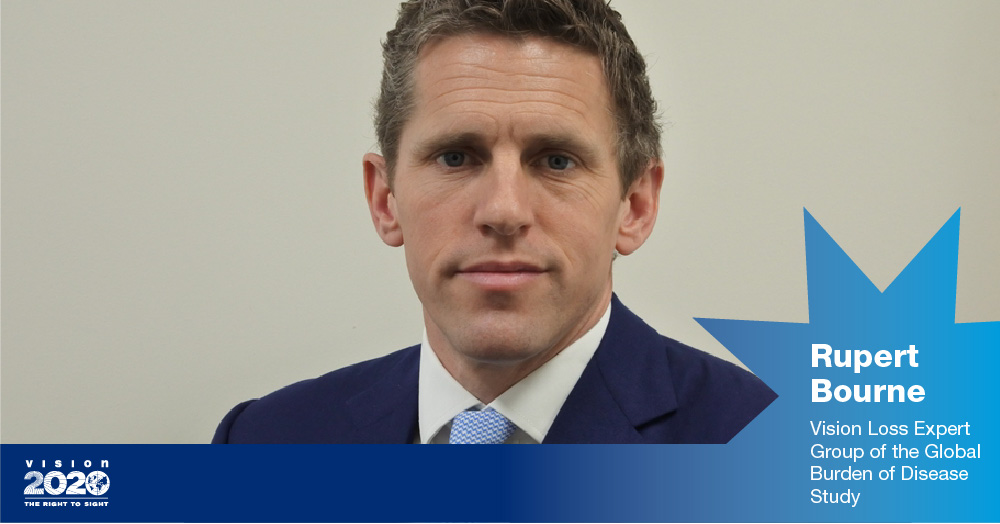Join a powerful, unprecedented alliance for better eye health for all.
Join IAPB-
Choose an alternate language here

I would like to nominate Professor Rupert Bourne for this award. Since 2007, he has led the Vision Loss Expert Group (VLEG), which now includes more than 100 ophthalmic and optometric epidemiologists from across the World. Throughout the VISION 2020 period, VLEG has been the principal epidemiology group for the publication of global, regional and country-level prevalence estimates of vision impairment and blindness. These have been published in The Lancet and other high impact journals between 2015-2020. Prof Bourne’s collaborative research with the World Health Organisation has provided the 2015 prevalence data that underpins the WHOs World Report on Vision (2019), resulting in him serving on WHO’s Technical Advisory Group for ‘Development of a Package of Eye Care Interventions’.
Professor Bourne has secured several grants from non-governmental organisations and academic institutions that has enabled the preparation, updating and maintenance of the Global Vision Database since 2010. This is the most comprehensive data repository for population-based studies of eye disease. These data have, for the first time, enabled important aspects such as gender inequity, age distribution, and temporal changes in vision impairment to be made available. Professor Bourne’s team has modelled these effects from 2010, allowing evaluations of key objectives of the Global Action Plan including the fact that the age-standardised prevalence of blindness has been decreasing. Professor Bourne and VLEG works closely with the Global Burden of Disease Study, supplying high quality data, analyses and independent critique of outputs (eg. DALYs). These are used by governments and NGOs worldwide.
Professor Bourne and the VLEG has provided the prevalence data for the important visualisations project ‘Vision Atlas’ launched by the IAPB. This online platform allows any internet user to access country-specific prevalence data on blindness and vision impairment, by cause for regions, and with functionality to look at time trends, and gender differences. Vision Atlas has received 45,000 unique visitors since its launch and 200,000 page views annually. In addition, Professor Bourne has advised several population-based studies of eye disease in the UK and overseas. He teaches and lectures widely. He is also the chief investigator for the EUROVISION project, funded by the European Commission. This has analysed self -reported vision and hearing data from the European Health Interview Survey from hundreds of thousands of households. This will be presented at an invited lecture at the 16th World Congress on Public Health 2020 in association with the European Coalition for Vision. Professor Bourne believes fervently in collaboration and dissemination of key information (‘actionable data’) to better the lives of people affected or at risk of vision loss and its multiple sequelae. With a publication record of 157 papers (64,000 citations of his research), he is the most cited researcher at Anglia Ruskin University, Cambridge, UK. In summary, Professor Bourne’s leadership of the Vision Loss Expert Group (VLEG) throughout VISION 2020 has raised awareness of the prevalence of eye diseases globally and has provided a consistent starting point for health agencies (e.g. WHO, UN), governments and international charities to compare, plan, justify and monitor eye-health interventions.